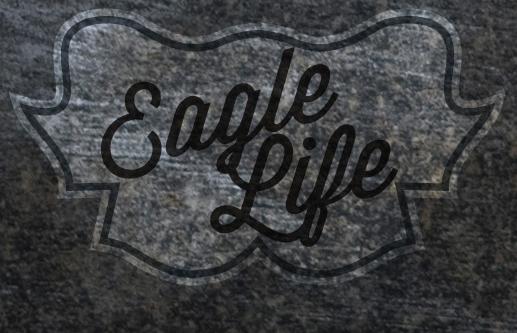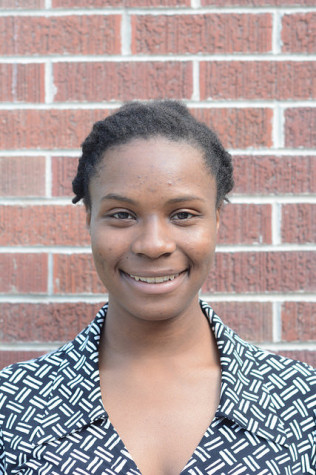‘Julius Caesar’ takes a stand on Eastern’s campus

April 25, 2014
On April 24 at 7:30 p.m., the theater capstone class will present their rendition of Shakespeare’s “Julius Caesar” at the EWU Theatre.
Theater students carried out every aspect of this production from lighting and costume to set and sound design.
The play is the Shakespearean account of the historical assassination of Julius Caesar, war hero and would-be Roman dictator, by a group of senators — including Marcus Junius Brutus and his brother-in-law, Cassius — on March 15, 44 B.C.
The material is over two millennia old, but the themes maintain modern relevance, according to members of the show’s cast.
“At its base, this is a show about human beings manipulating other human beings, and we see that all over the place,” said Dahveed Bullis, a senior theater major who will make his debut on the Eastern stage in the role of Caesar.
Teko Dumoulin, student director and senior in the capstone class, identified manipulation and propaganda as the show’s themes.
“We’re constantly being inundated by information that is not necessarily true, and if it is true, it is skewed in some way so that we’re supposed to feel a particular way about it.”
Dumoulin chose “Julius Caesar” as his capstone project over a year ago, allowing him to unite all the members of his capstone class in collaboration toward a single goal. Dumoulin chose “Julius Ceasar” because of its relevance to his current interest in politics, his love of Shakespeare, his familiarity with the material and early inspiration with regards to gender-bending as influencing his choice.
The most obviously gender-bent role is played by Nichole Meyer, capstoning theater major and graduating senior, who will end her career on the Eastern stage in the role of Cassius.
“It’s not the first time I’m playing a man,” said Meyer, noting her experience with the roles as Iago from “Othello” and Caliban from “The Tempest.” Still, Meyer describes playing Cassius as a singularly powerful experience. “Comparatively, most of [Shakespeare’s] women are quite weak. The women have their moments, but the men’s moments are continuous.”
Meyer used costume to help prepare for her role as Cassius, wearing heels and a pencil skirt to help her connect to Cassius as a politician.
“I started very early … finding this woman and her strength, and how she is not a villain — even though her actions and words seem villainous. Cassius is a revolutionary, is a rebel, is a woman of Rome, a man of Rome and is ultimately for the people,” Meyer said.
“She sets fires and it’s up to everyone else to put them out or keep them burning.”
Meyer is not the only one playing a complex character. Dave Logghe, also a senior and capstoning theater major, tackled both sound design and the role of Brutus. The character of Brutus is primarily known for the phrase “E tu Brute,” uttered by Caesar at the moment of his assassination.
“You know, there’s no record of that ever being said. I did some research, and it didn’t come up until the Elizabethan era,” Logghe said. He then noted the deep emotions triggered by the assassination scene containing the iconic quote, “I started crying the first time we really did that scene.”
While Brutus is traditionally thought of as the original backstabber and a symbol of betrayal, Logghe says Brutus’ decision to participate in the assassination of Caesar is quite difficult.
“The weight of choosing the right thing to do … is crushing Brutus throughout the whole play,” said Logghe.
Speaking as his character, Logghe said, “I can let Rome suffer under a tyrant or I can kill a man who is basically a father to me.
“It’s about what happens when you want to support both sides of something and you just can’t do it … it’s universal.”
Universality is what Dumoulin hopes will draw students to come to the play. “The show is produced for students by students; I think people will be surprised by the accessibility of the show.”
“Come for the blood, stay for the words of one of the most fantastic playwrights of all time,” Meyer said.
“Julius Caesar” opens in the EWU Theatre on April 24, at 7:30 p.m. and will run until April 26. Doors open at 6:30 p.m. The show is free to all.








